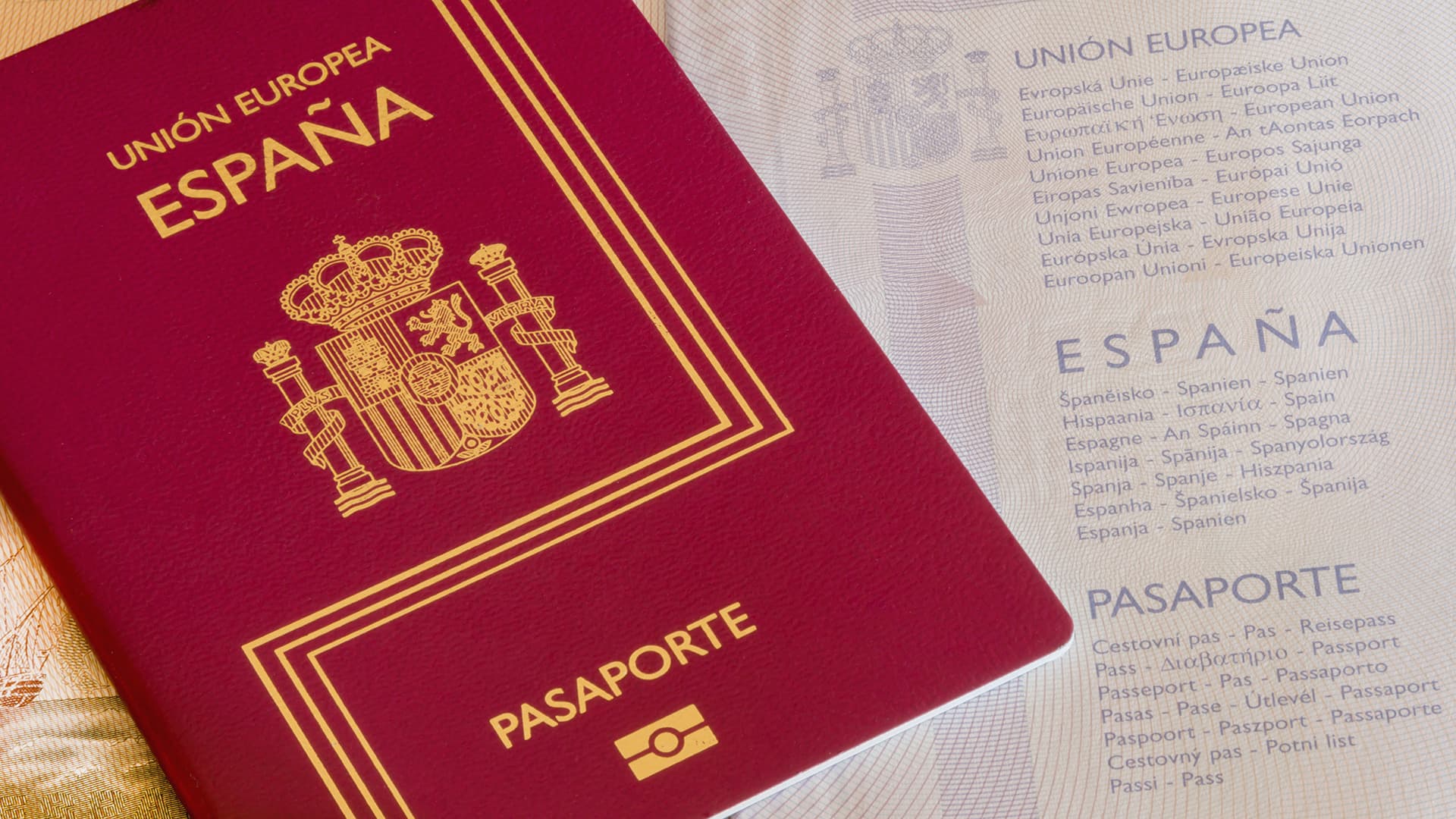Guide to tax in Portugal
The Portuguese Golden Visa is one of the world's most popular residency by investment (RBI) programmes. The country has grown in popularity due to its generous tax system. Special tax regimes can provide huge savings on worldwide income for up to 10 years.
Portugal offers a favourable tax system, as well as tax breaks and exemptions through the non-habitual resident (NHR) regime.
How are you taxed in Portugal?
All foreigners must be registered as a taxpayer in Portugal.
To register, you first need to obtain a Número de Identificação Fiscal (NIF) – otherwise known as a tax ID number. If you gained residency via the Portugal Golden Visa program, you should already have your NIF number.
The next step is to complete a form that you submit to your local tax office. If you are unsure where your local tax office is, you can find it through the Portuguese Tax Authority’s online portal.
The tax system in Portugal is split into two areas – federal and local taxes.
Federal Taxes
Federal taxes are paid on various sources of income, such as:
- Corporate tax
- Income tax on earnings for both employed and self-employed workers
- VAT for businesses
- Capital gains tax on property sales, investment income and other assets
- Inheritance tax on estates
Local Taxes
There are various local taxes in Portugal. However, IMI (Imposto Municipal sobre Imóveis) is the most common.
The income generated from IMI is used to fund maintenance of the local area and cover upkeep costs.
IMI rates depend on the area and only apply to homeowners. Be aware that those who own homes valued at more than €600,000 must pay a higher rate or IMI, known as AIMI.
VAT in Portugal
VAT in Portugal is known as Imposto Sobre o Valor Agregado (IVA). A business in Portugal must pay VAT if it has a turnover of over €10,000 on taxable goods and services.
There are three VAT bands:
Reduced Rate
For mainland Portugal, this is charged at 6% for essentials such as certain foods (meat, fruit, vegetables etc.), newspapers, books, medicines, transport, and hotel accommodation. For the island of Madeira, it is 5%, and for the island of Azores, it is 4%..
Intermediate Rate
A rate of 13% is charged in mainland Portugal on food and drink goods and services. For the island of Madeira, it is 12%, and for the island of Azores, it is 9%.
Standard Rate
23% on taxable goods and services for mainland Portugal. For the island of Madeira, it is 22%, and for the island of Azores, it is 18%.
Who pays tax in Portugal?
Your residency status will determine what counts as taxable income and the rate you pay.
In general, you will be classed as a tax resident in Portugal if:
- You spent more than 183 days in the country over a single 12-month period or;
- If you make Portugal your ‘habitual residence’ – in other words, if you class Portugal as your home
However, tax residence changes are not automatic. You must submit an application and documents to the Portuguese tax office. Companies also need to register to become Portuguese tax residents.
In Portugal, progressive tax rates apply, meaning the more you earn, the more you pay. A flat tax rate of 25% applies for non-resident individuals on income earned in Portugal.
Tax residency is a complex subject, but understanding yours is essential to ensure you are as tax-efficient as possible. If you are unsure, speak to an expert who will advise you based on your situation.
Income tax
Although income tax is automatically deducted from their salary, Portuguese residents must still complete an annual tax return.
The tax year runs from January 1st to December 1st. You must submit tax returns between April 1st and June 30th of the following reporting year.
The following sources of income are subject to income tax in Portugal:
- Employment income
- Self-employment income
- Income generated from investments
- Capital gains – for example, property sales, shares etc.
- Portuguese pensions and private pensions
While non-residents pay a flat rate, progressive rates apply to Portuguese income tax for residents. The table below shows the rates for 2022.


| Income Tax Bands (€) | Non-Resident Rate | Residents Rate |
|---|---|---|
| 0 – 7,112 | 20% | 14.5% |
| 7,112 – 10,732 | 20% | 23% |
| 10,732 – 20,322 | 20% | 28.5% |
| 10,322 – 25,075 | 20% | 35% |
| 25,075 – 36,967 | 20% | 37% |
| 36,967 – 80,882 | 20% | 45% |
| 80,882 + | 20% | 48% |
Capital gains tax
In Portugal, capital gains tax is charged at a flat rate of 28% on the sale of different assets. This includes any investment income such as the sale of shares or property sales.
If you are a resident in Portugal, you can also choose to be taxed at the scale rates instead. Being taxed in this way may be cheaper than paying a 28% flat rate.
Selling a property
For Portuguese residents, capital gains tax applies to the sale of properties.
The value is added to any other income and is taxed based on the scale system. You should note that only 50% of the gain is taxable. However, there are exceptions.
You will be exempt from capital gains tax if you reinvest all of the money into a new home. The new home doesn’t have to be in Portugal.
The sale of any UK property is also liable for UK capital gains tax – even if you are a non-UK resident.
Property tax (IMI)
You must pay Immovable Property Tax (IMI) if you own property in Portugal.
Like council tax in the UK, IMI rates depend on the area. Rates vary from 0.3% to 0.8% of the property’s value. If the property is left empty, IMI rates can reach as high as 10%.
You can find the IMI rates for each area by visiting the SAPO website.
Property wealth tax (AIMI)
A wealth tax is applied if you have shares in a property worth over €600,000 in Portugal. This tax is applied regardless of your residency status.
If the property is a joint venture, such as owning it with your partner, you only pay AIMI if the value is over €1.2 million.
The rates are based on a percentage of the total property value as follows:
- 0.4% for properties held by a company
- 1% for those who own property worth between €1 million and €2 million
- 0.7% for properties held by an individual
- 1.5% if the total value is over €2 million
Inheritance tax in Portugal
Portuguese inheritance tax rules state that the deceased’s home country should govern the process.
Stamp duty may apply at a flat rate of 10% on Portuguese assets. However, legitimate heirs, including your spouse, children and parents, are exempt from this tax in Portugal.
If you have assets in both countries, there could be a situation where tax is due in your country of origin and Portugal. If a double tax treaty exists, you can offset tax paid in Portugal against tax due in your home country.
Any tax due in Portugal must be paid within three months of the date of death. You should be aware that this is a strict deadline. Late payments can result in fines and added daily interest.
Corporation tax
If you own a Portuguese company, you will pay a flat corporate tax rate of 21% on all profits. Only profits earned in Portugal are taxable for those not registered as tax residents.
There is a municipal tax of up to 1.5% on profits up to €1.5 million. Additional charges apply to earnings over €1.5 million. To protect small and medium-sized businesses, they pay a reduced corporate tax rate of 17% on their first €15,000.
Double tax treaties
Double taxation treaties are agreements between countries designed to protect you from being taxed twice on the same income.
A double taxation agreement can help reduce the tax burden on things such as income tax. In some cases, they can also offer special rates on dividends, interest and more.
Portugal has double tax treaties in place with over 60 countries, including the United Kingdom, Hong Kong, the USA, Canada and China.
Visas and residency permits in Portugal
The Portuguese government introduced the non-habitual resident status (NHR) in 2009 for those who typically qualify as tax residents. NHR in Portugal offers tax reductions and, in some cases, tax exemptions for a 10-year period.
Those who qualify for non-Habitual Residency are taxed at a flat rate of 20% on Portuguese source income instead of the regular income tax rates (14.5% to 48%).
Some categories of income, such as foreign source income, are completely exempt from tax in Portugal. Non-habitual tax residents also pay a flat rate of 10% on their pension income.
Who can apply?
You can qualify for NHR if you have not been a tax resident in Portugal within the last five years.
You will also need to meet at least one of the following conditions:
- You have spent a minimum of 183 days in Portugal in the last year
- Have a home in the country that you use as a place of permanent residence
- Your job is considered a ‘high added value’ profession
- The table below shows what professions are classed as ‘high added value’ under the NHR scheme:
| NHR Regime – High Added Value Professions | |||||
|---|---|---|---|---|---|
| Geologists | Musicians | Clinical Surgeons | Psychologists | News agencies | Managers |
| Architects | Painters | Ship’s Doctors | Archaelogists | Other information and service activites | Directors |
| Engineers | Auditors | General Practitioners | Biologists and Life Science Experts | Scientific Research and Development | Higher Management |
| Singers | Tax consultants | Medical Physiatrists | Computer Programmers | Research and Development in biotechnology | Research and experimental development on natural sciences and engineering |
| Sculptors | Dentists | Doctors | Software Consultant | Designers | Investors |
| Theater, ballet, cinema, radio television artists | Medical Analysts | University Lecturers | Computer Consultants and related services | ||
Registering for residency and applying for NHR tax status is done through the Portuguese tax authorities.
Our guide to NHR in Portugal provides a more in-depth breakdown of the tax regime and the application process.
How Holborn can help
As a resident of Portugal, it’s essential to understand the tax implications to ensure you are as tax-efficient as possible. However, cross-border tax rules and laws are complex issues and speaking to an expert can help.
At Holborn Pass, we deliver a bespoke service and comprehensive solutions for clients looking to secure dual citizenship and residency. Our experts work with some of the leading world’s most established Golden Visa programs, leading law firms, developers, and financial institutions.
Contact one of our experts to find out how we can help you become more tax-efficient in Portugal.
Ready to begin your
residency journey?
Book a consultation
Reviews of Holborn Assets
You may also be interested in

Fast-track Spanish Citizenship with the Spain Golden Visa
The Spain Golden Visa is one of Europe’s most highly prized investor visas, and for good reason. It allows investors and their families to live, work and study in Spain. It also grants access...
Read more
The future of the Portugal Golden Visa explained
The fate of the Portugal Golden Visa has been up in the air since sweeping changes were announced by Prime Minister António Costa in February 2016. The aim was to tackle the country’s...
Read more
The UAE Golden Visa in 2023
Since 1980, the population in the UAE has increased by 164% from 1.01 million to 10.17 million in 2023. The huge increase is largely driven by expats. According to the latest statistics, expats make...
Read more
Final boarding call for the Portugal Golden Visa
After 11 years, it looks like this could be the final boarding call for the Portugal Golden Visa. The scheme has established itself as one of the most popular and sought-after of its kind in Europe...
Read more